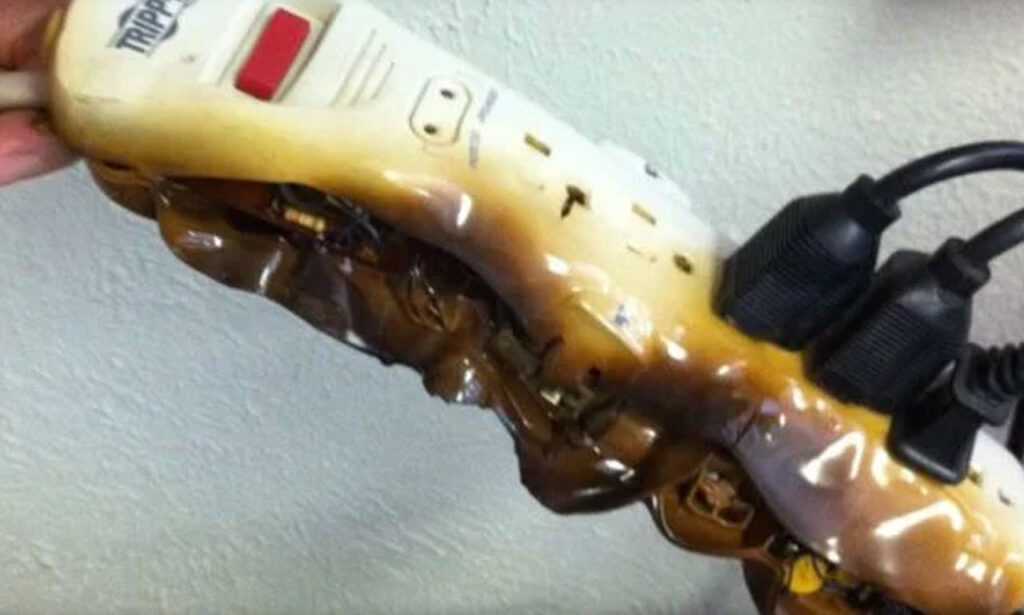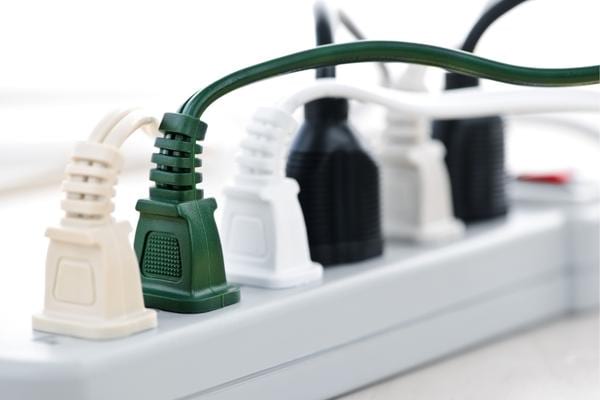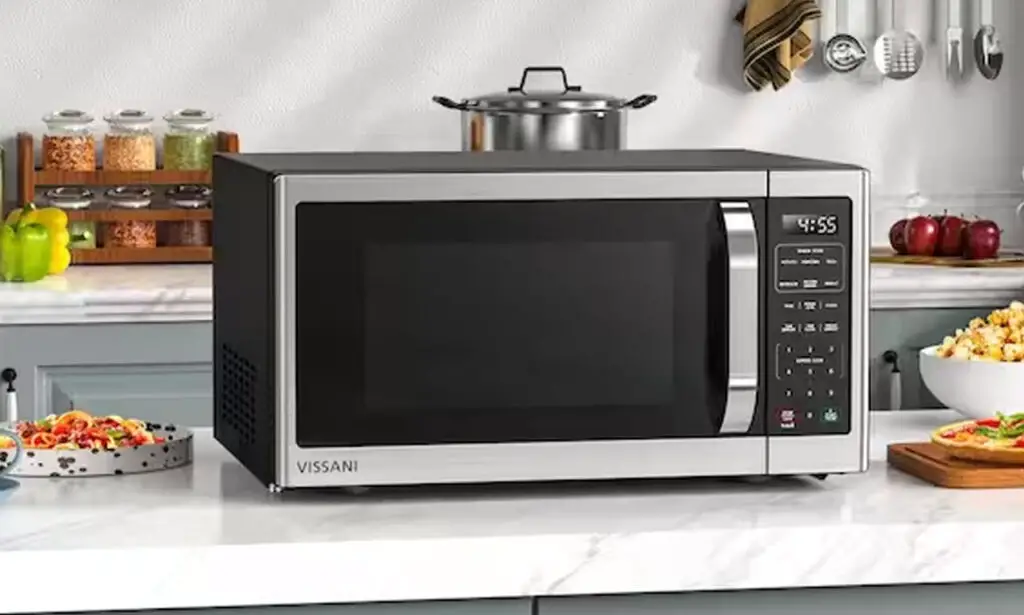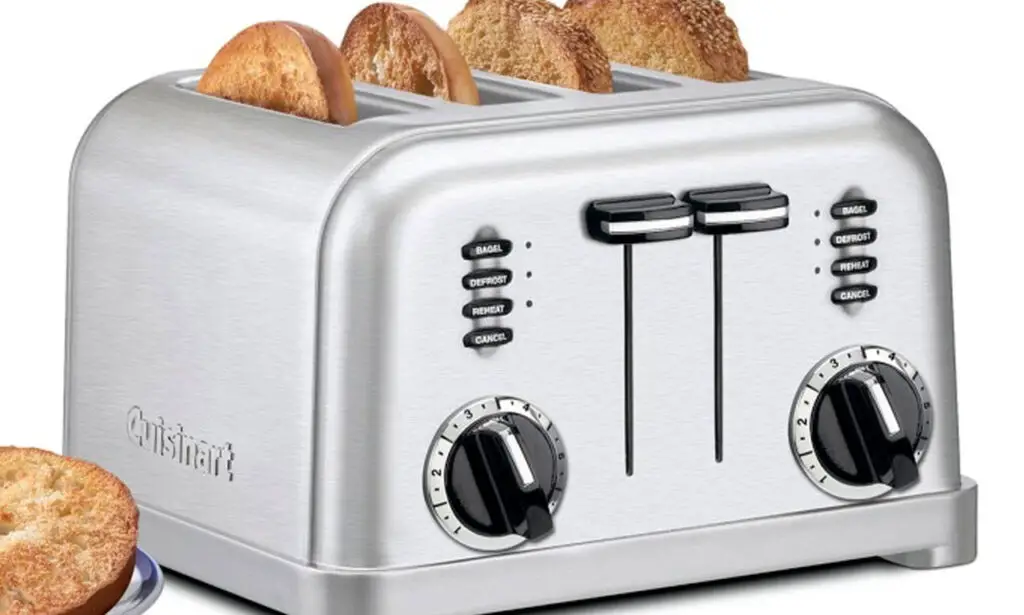
When we think of the past, one of the first thoughts that runs through our mind is how people lived without electricity. Nowadays, we can’t even imagine a day without it because all of our appliances and devices run on electricity.
The truth is, however, that most homes don’t have enough power outlets to keep everything running and charged, so most of us rely on power strips without being aware that appliances that consume a lot of energy become dangerous fire hazards when we plug them into a power strip.
Although power strips are the thing to go to when it comes to charging your phone or power an entertainment setup, there are certain devices that should never be plugged into a power strip.
Air conditioners, space heaters, toasters, and other appliances that use high wattage can easily cause power strips to overheat, which can easily lead to a fire hazard.

Even before plugging anything into a power strip consider the ammount of power they support. This is usually listed on the product itself.
High-capacity appliances need to draw a lot of power through an electrical circuit to work. Keep in mind that an appliance does not need to be large in size to draw large amounts of power.
Below is the list of appliances that should never be plugged into a power strip.
1. The oven: Even though the oven is not used continually, it is a power-hungry appliance that should not be plugged into a power strip. In fact, it should be plugged into its own wall outlet on its own circuit.
2. Refrigerator: Refrigerators require a lot of power and frequently cycle on and off which can easily overload a power strip and cause damage. Much like the oven, refrigerators require a wall outlet dedicated solely to powering the appliance.

3. Washing Machine: When turned on, washing machines pull a lot of power. This is the main reason why these appliances shouldn’t share a receptacle with any other appliance or device.
Most washing machines use a max of up to 1400 watts, putting it dangerously close to the max load of most power strips. On top of that while working, washing machines are usually left unattended and work longer hours, at least an hour, which is long enough for a power strip to overheat.
4. Heating: Portable heaters should never be plugged into a power strip because most of them use 1,500 watts of energy on their high setting and they usually run for extended periods of time.

5. Microwave: Since they consume a lot of energy when used, most microwave ovens are plugged into their own receptacle and that is always a good practice.
6. Coffee Maker: Those who own a coffee maker are not fully aware of the power these appliances use, and this is why they should never be plugged into any sort of power strip or extension cord.

7. Toaster: You may think that browning up slices of bread or bagels doesn’t require a lot of energy, but the truth is that toasters use a lot of energy when in use and they should be plugged directly into the receptacle rather than a power strip.
8. Another Power Strip: Power strips are not meant to be used in conjunction with another power strip, although many people do exactly that. This, however, violates most safety codes because it can easily lead to overloading the electrical system.
9. Electronics (Computer, TV, Router): These types of electronic devices don’t necessarily use a lot of power on their own, but they are sensitive to surges and you can find yourself with a burnt out computer or TV very quickly if you plug them into a power strip.
If you want to protect these sensitive devices from power surges, opt for a power strip that functions as a surge protector.
Your Opinion Doesn’t Matter To Me. She’s The One I Want To Share My Life With!

In a society that often seems obsessed with youth and superficial beauty, Keanu Reeves’ recent public appearance with his gray-haired partner offers a fresh and in-depth look at real love. This performance is not just a moment of personal joy for Reeves, but also a powerful symbol against conventionality beauty standards and ageism in relationships, which invites us to reconsider our biases and cultural programming.
Stereotypes
The surprising news of Reeves’ choice to share his life with someone who defies society’s beauty standards speaks volumes.

This choice not only challenges the stereotypes that influence our perceptions of relationships, but also highlights how public figures can help broaden our view of love and relationships.
“I want to share my life with her,” Reeves declared, a phrase that should resonate deeply with those who believe that love goes beyond physical and settles in the souls of those involved.
This counterbalances the superficial view often promoted in media and entertainment, where love is often reduced to visual appeal and youth.
Characters
Reeves’ choice to openly demonstrate his love for his partner, regardless of her age or hair color, sets a powerful precedent.

As a public figure, his action has the potential to shift norms and expectations around relationships and attractiveness.
Celebrities play an undeniable role in shaping societal attitudes; their choices can serve as catalysts for important discussions and changes, such as those surrounding ageism and the true value of emotional connections.
Their influence is far-reaching, and by using their platform to promote unconventional choices, they can make significant positive stimulate changes in society.
Social-Cultural
It is essential that we as a society reflect on the pressure we place on individuals to conform to certain relationship images.

Reeves’ relationship reminds us that love is much more complex and profound than what is often portrayed by the media.
It underlines the importance of shared experiences, values, and insights that underlie sustainable partnerships.
It encourages us to look beyond the superficial criteria that are often emphasized and recognize that the core of a relationship lies in the connection, communication and shared respect between partners.
Connection
Keanu Reeves’ choice to share his life with his loved one, regardless of external factors, highlights a universal truth: true connection knows no boundaries.

Love transcends age, appearance and other superficial characteristics that are often overemphasized in popular media.
This public appearance is a powerful reminder that in matters of the heart, the deepest and most satisfying relationships are rooted in mutual respect, understanding and a shared vision of life.
Main points of the article: Your opinion doesn’t matter to me. She’s the one I want to share my life with!
- Challenge of Stereotypes: Reeves’ choice challenges existing stereotypes about beauty and age and promotes a more inclusive view of love.
- Celebrity Influence: As a public figure, Reeves has the power to redefine societal norms and promote greater inclusivity through his personal choices.
- Reflection on Social Pressure: The relationship encourages a rethinking of societal pressures surrounding relationships, and encourages us to appreciate the true essence of connection.
- Essence of True Connection: The genuine love between Reeves and his partner redefines what it means to be in a relationship, regardless of physical or material considerations.

These moments, no matter how small, are the building blocks for a more loving and inclusive world.



Leave a Reply